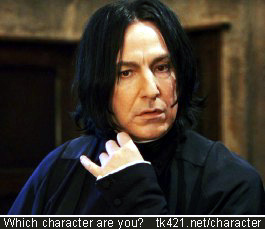Word count: 1315
The following is an email I sent to the C/7 list in regards to the perennial “Did Seven ruin Voyager?” controversy. An abbreviated version of the argument below can be found in the comment I made in Rocky’s Seven of Mine LJ entry last month on the same topic.
People who pin the changes in Voyager on Seven’s appearance are missing the point. The show had problems at least a season before Seven, and I would say two seasons beforehand. As I recall, the actor playing Kes quit and Seven was a replacement. That a replacement for a relatively minor character ended up taking over the show is a sign that there was a huge vacuum in the show waiting to be filled, and Seven filled it.
An ensemble is not enough to carry a sci-fi show, and it wasn’t carrying Voyager. While ensembles are nice in principle, they can lead to an unfocused feeling where all the characters blend into one another, have no disagreements or tensions, and are, to put it bluntly, boring. TNG was terribly dull at the character level because of the shiny happy Starfleet ensemble - the most interesting thing those people did together was play poker. TOS, on the other hand, never had this problem, partly because of Spock and McCoy’s constant bickering and partly because it was never an ensemble show. TOS was about Kirk, Spock and McCoy. By season 3, Voyager wasn’t about anything and didn’t have the novelty value of TNG to keep people interested. There were better sci-fi shows around.
I think people overrate the value of an ensemble cast, or to be more precise, they use the “ensemble” canard because they can’t pin down what really went wrong with the show. If Voyager had suddenly become focused on Janeway, Chakotay and the EMH, the most vocal critics (whether J/C or pure Chakotay fans) would never have complained that, say, Tuvok was getting shafted. Chakotay was a pivotal character, and not only for the J/Cer’s romantic purposes. In a sense, Seven of Nine did not replace either Kes or the mystical ensemble - she replaced Chakotay.
Voyager’s early momentum was shot not when Seven showed up, but when the conflict between Starfleet and Maquis (and Tom) was brushed off. After that there was no internal conflict in the crew to carry between shows, and the nature of the premise kept external conflicts (say, Picard or Kirk vs. the Starfleet brass) from recurring. Chakotay was the most affected by this change because as the leader of the Maquis he was the one who either personified or resolved the resulting conflicts. The canon Paris/Torres relationship was a bad idea (”Blood Fever”, third season) because it defused yet another important area of conflict, as did “Resolutions” for the Janeway/Chakotay non-relationship.
When Seven appeared, she took up Chakotay’s dropped mantle of being the show’s “contrary.” She was outside of Starfleet like the Maquis had been, she had an annoying personality like Spock’s, and she had to learn about humanity like Data, while being tempted to go back to her own people like Odo. She filled a vacuum. If the Maquis issues hadn’t been dropped, then the show could have gone back and forth between other conflicts and Seven-based conflicts, maintaining the ensemble illusion. Instead, it rode on Seven for some time until new conflicts could be created. Demoting Tom was a good idea of which little was ever made, since it had no effect on his duties or his painfully dull relationship with B’Elanna. The EMH’s new, even more annoying personality was a better move for the writers. He became the character you loved to hate, whereas pre-Seven he had been the adorable curmudgeon.
Now it’s possible the Maquis conflict was doomed from the start, since it was political and Trek is a sci-fi show. The writers weren’t up for producing DS9 in the Delta Quadrant, but at least they could have kept up the Starfleet/Maquis banter to the Spock/McCoy level. In fact, as the real conflict subsided, joking about it was likely to increase in such a community. Instead, the writers dropped a major premise of the show, leaving it drifting in search of the Borg.
I sympathize with fans who mourn the old Voyager, but not because of the ideal of an ensemble or some promising pairing (J/C, J/P, C/T, P/Kes, etc.) that never got off the ground. I like J/P and I like ensembles but I like Chakotay in leather and Tom in the brig more, and I’m not the only one. The Maquis that should have been are still popular in fanfic, from Talking Stick/Circle to MJB’s Revolution to various AU J/C fics. One of the big disadvantages of C/7 being canon is that the leather-clad Maquis Chakotay doesn’t show up nearly often enough in C/7 fic.
Consider it a challenge: What if Seven of Nine had met the early Chakotay?
